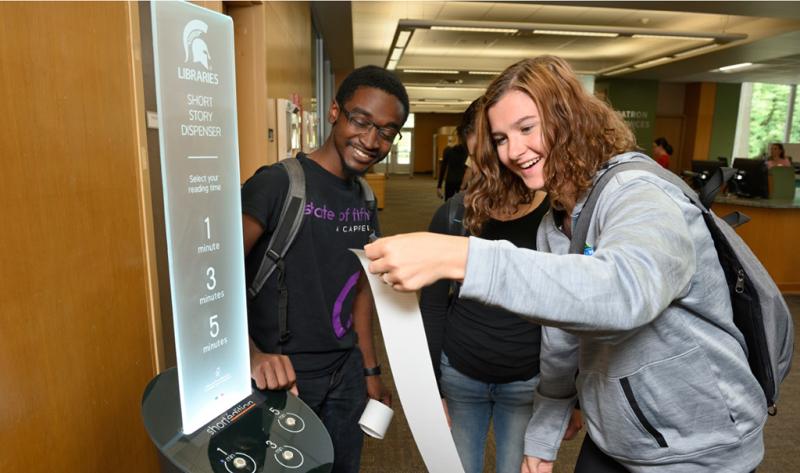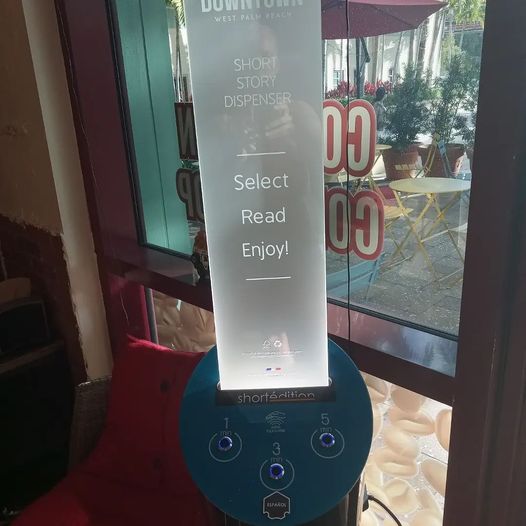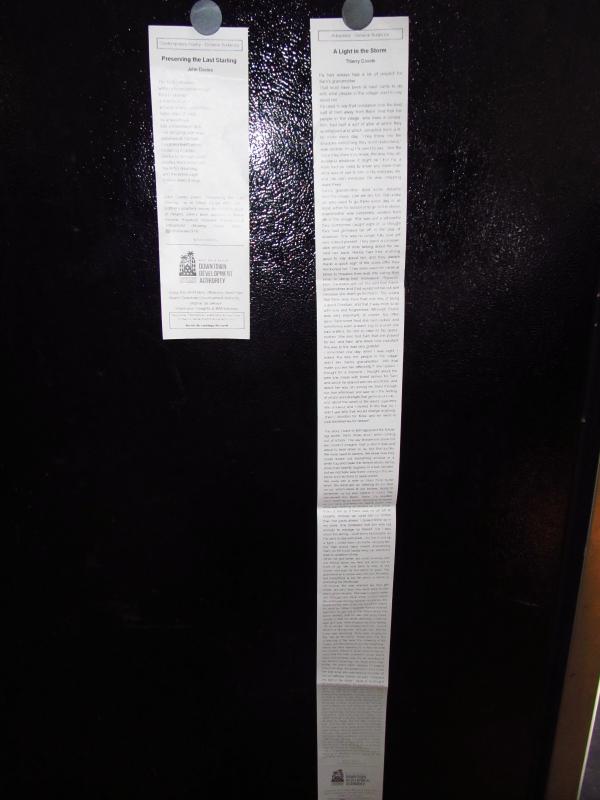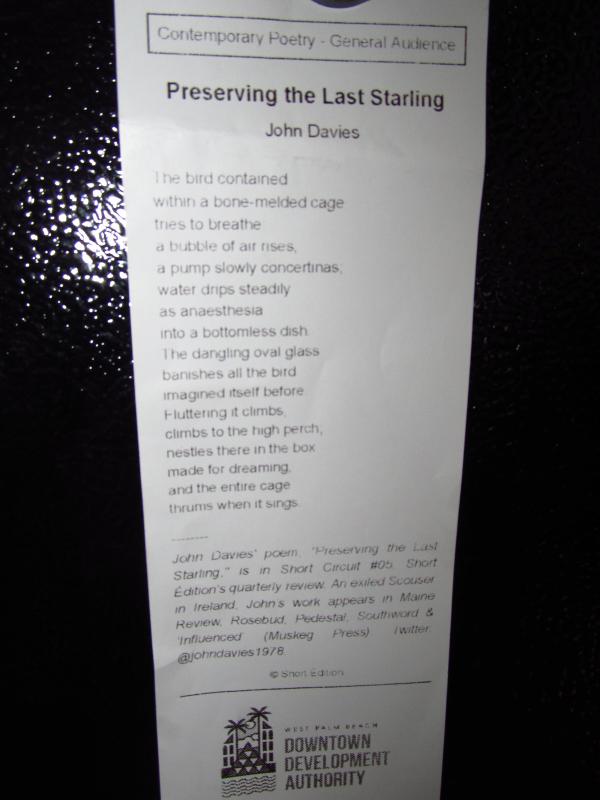A novel idea: Short Story Dispensers
It’s no secret that reading for pleasure has been on the decline for decades due to the competition between electronic media and television. What if there were a way to entice people to read more literature in short increments?
I just came back from West Palm Beach, and while waiting for a breakfast sandwich at a café, noticed an odd cylindrical device by the door with a frosted glass sign that instructed: “Select. Read. Enjoy.”
It was a Short Story Dispenser—who knew there was such a thing?
Short Story Dispensers are stand-alone kiosks that produce short fiction and nonfiction stories for the public. Stories are available in one-minute, three-minute, and five-minute lengths. I pressed the button for a one-minute story, not seeing any coin operation or a place to slide my credit card. It was free. The story that scrolled out on recyclable sustainably sourced paper was printed on demand using thermal technology, and curled out like a grocery receipt.
It was a poem. [See inset below] I’m not a huge fan of poetry as a medium, but as I was waiting for my sandwich, I had time for a one-minute poem. I read the bio info first, and realize the author, John Davies, who refers to himself as “an exiled Scouser in Ireland” has had work published in the Maine Review literary journal. Then, I read the poem and it took me out of West Palm Beach, out of a bustling café for one minute, and into a bird cage.
Preserving The Last Starling
The bird contained
within a bone-melded cage
tries to breathe:
a bubble of air rises,
a pump slowly concertinas;
water drips steadily
as anaesthesia
into a bottomless dish.
The dangling oval glass
banishes all the bird
imagined itself before.
Fluttering it climbs,
climbs to the high perch;
nestles there in the box
made for dreaming,
and the entire cage
thrums when it sings.
The concept is the invention of Short Édition, a French publishing house of short literature: poetry, short stories, and flash fiction with a U.S. branch in Philadelphia. In addition to their online platform, Short Édition publishes fiction around the world via 300 Short Story Dispensers, primarily in English and French with additional language translations.
There are 137 Short Story Dispensers and 14 Short Story Cubes installed in the United States. To find out where a Dispenser is, there is an interactive map on the website. The closest Dispensers in New England are in Boston with the nearest being in the lobby of Lafayette City Center, a mixed-use office and retail complex.
Universities and schools are big proponents of the Dispensers, as are cafés, public libraries, airports, and hospitals—basically, any place where a few idle moments can turn into an emotional and intellectual engagement with stories.
“Short Édition has an editorial team and we work with authors all over the world,” said Melissa Falcou, the U.S. sales representative. “Every one of our authors receives royalties.” While the website is currently pausing any more incoming submissions, the company has amassed hundreds and hundreds of original works for flash fiction stories in the categories of short fiction, poetry, creative non-fiction, comics, children’s, and classics. The stories are all curated, edited, and loaded into the Dispenser, and even if a person pressed the one-minute button 100 times, he would not receive the same story.
The Dispensers come in different sizes for different purposes and can give schools and universities the chance to showcase local authors or students and raise literacy rates in an engaging, interactive way.
“Sometimes schools will curate content through contests and class work and will promote that work on their Dispensers,” said Falcou. The purchasers of the Dispensers cover the costs of the paper. As for the cost of each one, “It really depends on the project, but it is usually located between $6K to $11K,” said Falcou.
As The Washington Post states, “Maine is a fertile ground for literary talent.”
I could see these Dispensers in airports, cultural centers, and cafés, promoting Maine authors. I can also see how schools and libraries, and programs like The Telling Room, could spark the love of pleasure reading for kids and teens in fun, low-stakes way.
As for adults, who are too busy looking at their phones while waiting for a breakfast sandwich? Why not get lost in a bird cage poem for a minute instead?
Kay Stephens can be reached at news@penbaypilot.com




































